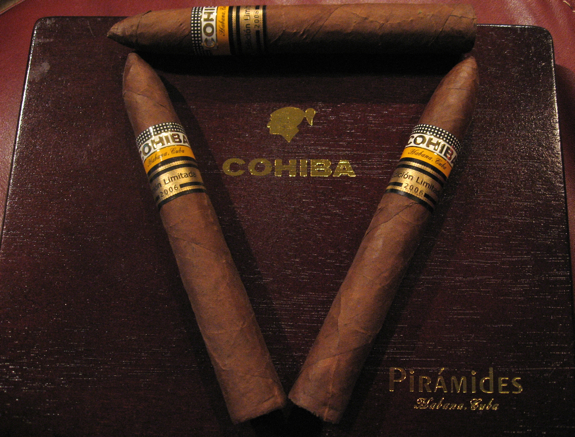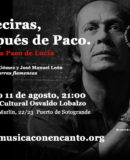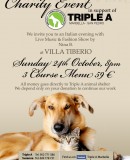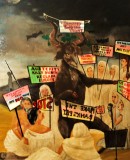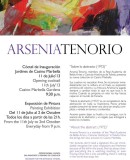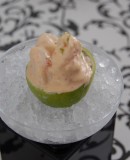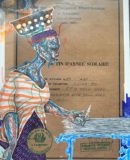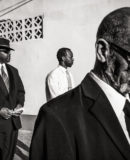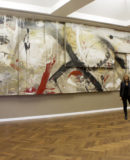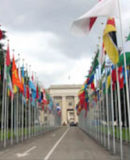Havana Dreams
HAVANA DREAMS Originally published in Diario Sur in Spanish on 8 July 12 A.J.Linn
As if it were not difficult enough to smoke cigars in Spain, or in fact to smoke anything, aficionados of Havana cigars have to be doubly careful.
A friend recently told me he was as happy as if he were a big lottery prize-winner. He had managed to find a website selling genuine Havana cigars at big discounts. As a habitual cigar smoker this was an important moment, since everyone knows that to get hold of a good cigar you normally need to take out a payday loan to cover the cost. And these were beautiful Cohibas, in a cedar wood box with a glass lid.
My friend is not by nature very generous, but one day he gave a cigar to a colleague who also loved a good smoke. However after a few puffs this colleague, who clearly knew more about cigars than my friend, became closely interested in the cigar band, particularly the little black squares that identify a Cohiba. He noticed the band was badly printed, and being by nature suspicious he started looking on the web until he found an authoritative site that assured anyone who cared to read it that all Cohiba bands were impeccably printed. Nor had the factory ever produced cigars in boxes with a glass lid. My friend was devastated, now convinced he had been sold fake Cohibas.
Just like Chateau Lafite wine, that sells more bottles in China than are ever exported from Bordeaux, any Havana cigar that sells for a price much below the official figure is suspect, whether Cohiba, Partagas, Monte Cristo, Romeo y Julieta, Punch, et al.
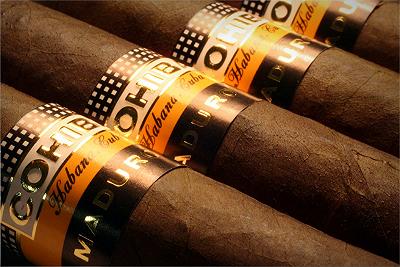 A Havana cigar is one of the glories of civilization. Its manufacture is extremely complicated and has not varied in the last one hundred years. Not only the way of cutting the three different types of leaves that go to make each cigar, to the manner in which it is aged before being offered for sale, adheres to a rigorous procedure. The production and distribution is strictly controlled by the Cuban government, and it is almost impossible that cigars can be acquired outside the official sales network. The export of the cigars to earn much-needed foreign currency is absolute priority.
A Havana cigar is one of the glories of civilization. Its manufacture is extremely complicated and has not varied in the last one hundred years. Not only the way of cutting the three different types of leaves that go to make each cigar, to the manner in which it is aged before being offered for sale, adheres to a rigorous procedure. The production and distribution is strictly controlled by the Cuban government, and it is almost impossible that cigars can be acquired outside the official sales network. The export of the cigars to earn much-needed foreign currency is absolute priority.
Most of the production is of small cigars, and the large ones (robustos, Churchills, torpedos, double coronas) are much sought after but hard to find. If you find yourself in Cuba you will be offered cigars continually at precios muy especiales with all sorts of stories about how they were smuggled out of the factory, or are ‘seconds’ (these don’t exist either), or are taken in lieu of wages by some astute workers. Only this last category may be authentic, and even if not you will still get a good smoke for a decent price, even if not as good as the genuine article.
Forgeries abound, especially of the big cigars, and although the fakers are getting better all the time there is nearly always some detail that gives them away. Silly things like badly-printed bands, boxes not made of the correct wood or with printed instead of branded letters, poorly-shaped cigars, added luxury touches like the glass lid of my friend’s Cohibas. The hardest to identify are the ‘Havana’ cigars made in places like the Dominican Republic and exported to the USA correctly (they could not be exported any other way), but once on US soil they have new bands fitted and are repacked in almost 100% genuine Cuban boxes.
Spain is actually the only country in the world outside Cuba that offers Havana cigars at uninflated prices, thanks to a special treaty signed between the two countries decades ago.
My friend later found out that if he had kept his ‘Cohibas’ intact instead of smoking them, he could have sold the box to a collector. Apparently there are even collectors of fake Havana cigars.
Disclaimer: The views, opinions and positions expressed within this guest article are those of the author AJ Linn alone and do not represent those of the Marbella Marbella website. The accuracy, completeness and validity of any statements made within this article are not guaranteed. We accept no liability for any errors, omissions or representations. The copyright of this content belongs to AJ Linn and any liability with regards to infringement of intellectual property rights remains with the author.

